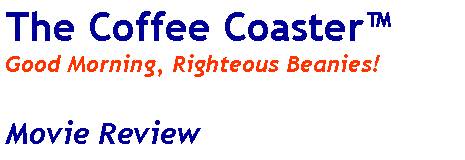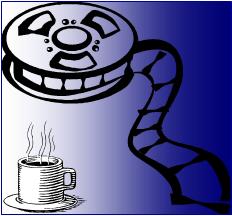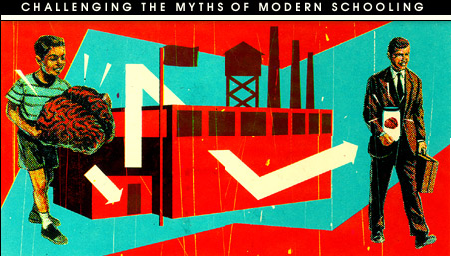

|
 |
Milk ____ (9/10)
|
Please go to the new Coffee Coaster site implemented more gracefully in Wordpress. This page: http://brianrwright.com/CoffeeCoasterBlog/?p=5743 |
Sean Penn ... Harvey Milk
Emile Hirsch ... Cleve Jones
Josh Brolin ... Dan White
Diego Luna ... Jack Lira
James Franco ... Scott Smith
Alison Pill ... Anne Kronenberg
Victor Garber ... Mayor George Moscone
Denis O'Hare ... State Senator John Briggs
Harvey Milk: [Voice Over, Last lines] I ask this... If there should be an assassination, I would hope that five, ten, one hundred, a thousand would rise. I would like to see every gay lawyer, every gay architect come out... If a bullet should enter my brain, let that bullet destroy every closet door... And that's all. I ask for the movement to continue. Because it's not about personal gain, not about ego, not about power... it's about the "us's" out there. Not only gays, but the Blacks, the Asians, the disabled, the seniors, the us's. Without hope, the us's give up - I know you cannot live on hope alone, but without it, life is not worth living. So you, and you, and you... You gotta give em' hope... you gotta give em' hope.
Scary words to some:
Just last Sunday I was talking with a fellow CtC Warrior[1] at the Pete Hendrickson Declaration Day picnic-gathering in Commerce, Michigan. Neil and I are having a good conversation and I'm telling him all about the Free State Project (FSP) and the Free State of New Hampshire, where recently some of my brave activist-colleagues were successful in turning back the mandatory seatbelt Nazis. Neil seems to be all positive-vibed up, and his girlfriend/wife seems genuinely interested in looking into the FSP. Then he asks me in a slow, dour voice:
"Didn't New Hampshire just pass a gay marriage law?"
"Yep, it's just as legal as the right to pack heat in public," I come back.
Well, he didn't say anything more, but I sensed what he was feeling. In the freedom community there is a decidedly homophobic
element... which can be analyzed from a lot of different angles. Mainly, I think it stems from a simplistic Pleasantville pattern in their heads, where "this is the way 'things' are s'posed to be: 'God, Holy Bible, woman-obeys-man, man-follows-God authority without question, then man gets to have sex with woman, and man don' wan' no pansies askin' no foo' quessions.'"
"Stand up, stand up for Jesus, ye soldiers of the Cross."
On a smaller scale you see the same phobia—in the "right wing" part of the freedom community—toward drug freedom or antiwar sensitivities (or truth discoveries in that peace context). I can make a solid argument probably to convince Neil and other Pleasantville libertarians (PLs) to let gays be married... overcome their childish fears and make the broader case to separate the state from voluntary human relationships. The PLs are befuddled and afraid of the new stuff, but they are, above all, libertarian, which saves the day and leaves the different people alone.
Not so in the culture at large. Fear and ignorance are still in the driver's seat and the "by golly, these gay people aren't even human" sentiment yet thrives. The movie Milk traces the life and political career of Harvey Milk who is 'different' because of his homosexuality. The opening stillframes show police operations against homosexuals—predominantly in the club scene—in major cities of the United States in the 1950s and 60s. "Did we really arrest people for homosexuality in those days?" I say to myself. "Amazing," I think, when I probably should be thinking, "Outrageous!"
Then I remember, in the late 1960s and early 1970s as a libertarian coming of age, how I tended to put the state's general violations of gays' individual rights on the back burner of my activism. Same with the other movements, like the peace and drug-freedom causes, that I perceived more associated with various "collectivisms" that I was concerned about as a John Galt[2] woobie. I say this now as a feeble, belated apology to all those fighting for liberty in a much more real way than I was then. How could a libertarian be so insensitive to the rights of the different?
Watching Milk last night was a catharsis for me in many ways... and an atonement by way of resolution in the future to especially fight the state as it coerces gays. Walter Block once wrote a book called Defending the Undefendable, where he basically argued that so many that society legally marginalizes are in fact the best friends of liberty we have: prostitutes, drug runners, gamblers, unlicensed-service providers, and so on. Indeed, as time moved on, the Libertarian and libertarian movement increasingly mutually identified with these "undefendables," particularly gays... and the marijuana people.[3]
Yet in the 1970s when most of the action takes place in Milk, the Libertarian/libertarian movement was mostly a gleam in someone's eye. Until the 1979 Libertarian Party National Convention in Los Angeles, libertarians existed even more under the radar than the homosexual community. Harvey Milk, turning 40, looked around in his adopted neighborhood of San Francisco and saw a need to stand up and fight back. There were very few cities that practiced tolerance for gay life, and even San Francisco did not give in without hostility and police coercion.
Eventually, through organizing—through "recruiting" as Harvey puts it—Milk is elected as a city supervisor (equivalent to a city council person). Naturally, his primary focus is on the enablement of his people to live untrammeled normal lives, but he becomes a regular public servant and local political leader in every sense of the word... to the degree of requiring citizens to clean up their dog's poop (a major issue in the City by the Bay in those days). He meets Dan White, who has been elected supervisor in a neighboring old-traditional Irish-Catholic district.
Though as we all know, the disturbed "Twinkie afflicted" Dan White proves to be the death of both Milk and Mayor George Moscone, White is really only an insignificant cul de sac to the thoroughfare of Milk's cause-oriented life. In 1978, a state senator named John Briggs launched a ballot drive in California that would have banned homosexuals "and their supporters"(?!!!) from employment in the public schools. These were the days when Anita Baker was traveling to states and municipalities to defeat gay rights ordinances, and gay bashing was a popular reactionary pastime for the Jerry Falwell moral majoritarians of the country.
During the 1978 San Francisco Gay Freedom Day, Milk gave his famous "Hope Speech:"
"On this anniversary of Stonewall, I ask my gay sisters and brothers to make the commitment to fight. For themselves, for their freedom, for their country ... We will not win our rights by staying quietly in our closets ... We are coming out to fight the lies, the myths, the distortions. We are coming out to tell the truths about gays, for I am tired of the conspiracy of silence, so I'm going to talk about it. And I want you to talk about it. You must come out. Come out to your parents, your relatives..."
During the speech (and others like it) Milk quotes the Declaration of Independence and the Constitution to good effect: "We hold these truths to be self-evident. All men are created equal..." "We the people of the United States..." The film does a fine job of merging the fight for dignity and freedom of the different with the general cause of human liberty. Right arm!
Like the more 'ordinary-people' portrait of male homosexuals Brokeback Mountain, several sequences of the Milk film are not for the heterosexual faint of heart. Although Milk refrains from the rough suggestion of anal intercourse that, to my mind, is a too-literal signature moment of Brokeback, Milk makes up for its respect of the heterosexual-community comfort zone with a whole lotta male kissing. Basically, yeah, I wouldn't want to live in a community where PDAs[4] to that degree—or more —were allowed. And I can see why straight communities would act to keep ostentatious displays out of the vicinity of "the us's."
But, thankfully, Milk and the vast majority of gay men—or women—don't want to kiss, blow, or hump in public any more than straight folk. They want to be left alone to find their own little place in the sun. The movie is honest about the fundamental psychological problems faced by gay men: the promiscuity, meaningless immediacy of the act, the lack of self-esteem in terms of their own gender, the widespread dishonesty with oneself and in relationships. And I'm glad Milk doesn't pull any punches there; ultimately, many in the gay community, with the inspiration of men like Harvey Milk, make the best of their natural situation.
So is homosexuality genetic, enculturated, or volitional? What do I know? If I had to guess, it sure seems 90%-plus like that's the way you're born. Is it a defect? Perhaps in the grand scheme of Mother Nature, but then so are people who don't have any id whatsoever, or even those who have a foot fetish. But really why should we care, any more than if people want to smoke weed or drink spiked Koolaid in the privacy of their homes. THEY ARE ALL PEOPLE. And absent aggressive harm to others, what they do with their lives is none of the state's business.
Sean Penn is simply unbelievable in this role. He out-Milks Milk. He totally deserves this Oscar, just as much as I remain mystified why he won Best Actor for Mystic River. Milk is inspirational, funny, dramatic, caring. You will feel the love and you will want to share it.
###
[1] Reference book review: Cracking the Code: The fascinating truth about taxation in America.
[2] John Galt is the major protagonist of Ayn Rand's legendary novel of mind liberation, Atlas Shrugged.
[3] Probably the apotheosis of the civil libertarian is Peter McWilliams and his book Ain't Nobody's Business if You Do.
[4] public displays of affection

Click banner to order, click here for book review


Click banner to
order, click here
for book review

Click banner to
order, click here
for book review
 |
 |
|||
| |